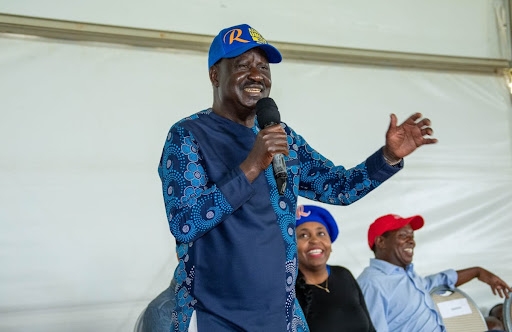The task force report on the Competency Based Curriculum launched by the President earlier this year recommended a raft of measures.
The measures would enhance the implementation of the basic education curriculum.
It advised the Ministry of Education on issues, policies and strategies the sector needs to address to ensure quality for effective curriculum reforms implementation.
Little progress has been made as the ministry grapples with systemic challenges like inadequate infrastructure and shortage of CBC trained teachers.
Further, its proposal to review textbooks, hardly three years into CBC. This is a clear indication that we are not ready to implement the curriculum.
If this year’s chaotic transition of students to secondary is a yardstick for our preparedness, then a disaster looms.
Schools are congested with students and facilities stretched putting their management in limbo.
This is as we anticipate a double transition in 2023 when the last cohort of the 8-4-4 system transit to Form one and the CBC pioneers to junior secondary school ( Grade 7, 8 and 9).
Education CS has said the junior secondary school will be hosted in primary school but they lack the resources and infrastructure hindering engagement with CBC content.
Education reform has over time proven unattainable as the teachers tend to adopt a hybrid approach especially when there is inadequate preparation.
We are not ready to address critical issues that will influence the double transition, among them a 27 per cent increase in the secondary school learner population in 2023.
Yet fewer funds are being given to CBC in the budget.
Proponents argue that a competency-based curriculum approach to education is needed because not all students are being adequately prepared for careers or college and achievement gaps remain despite past reforms.
It’s claimed that the traditional school system perpetuates patterns of inequality and lacklustre performance as learning is not personalized and teachers often do not leverage students as active participants in their studies.
Were the teachers adequately prepared to implement CBC? No. Their reorientation was too simplistic not a true concept of CBC which requires overall in the model of training and preparation of teachers.
Education reform has over time proven unattainable as the teachers tend to adopt a hybrid approach especially when there is inadequate preparation.
CBC implementation requires working from the core to the edges with the right mix of fidelity and adaptation.
It emphasises continuous as opposed to summative assessment. The recent national assessment of CBC pupils did not show a clear feedback framework for teachers.
The standardized national assessment is designed to help the teachers identify every child’s learning needs but because teachers get little support to improve their own assessment literacy the new assessment values for teaching and learning has been limited.
If we emphasise outcomes and competency in learning then the theory of differentiated learning should apply.
Unlike 8-4-4, CBC is not time-bound.
A learner can only proceed to the next level upon demonstration of mastery, not effort participation behaviour or time.
The CBC could be a disaster in the offing.
Student, Maasai Mara University
Edited by Kiilu Damaris











